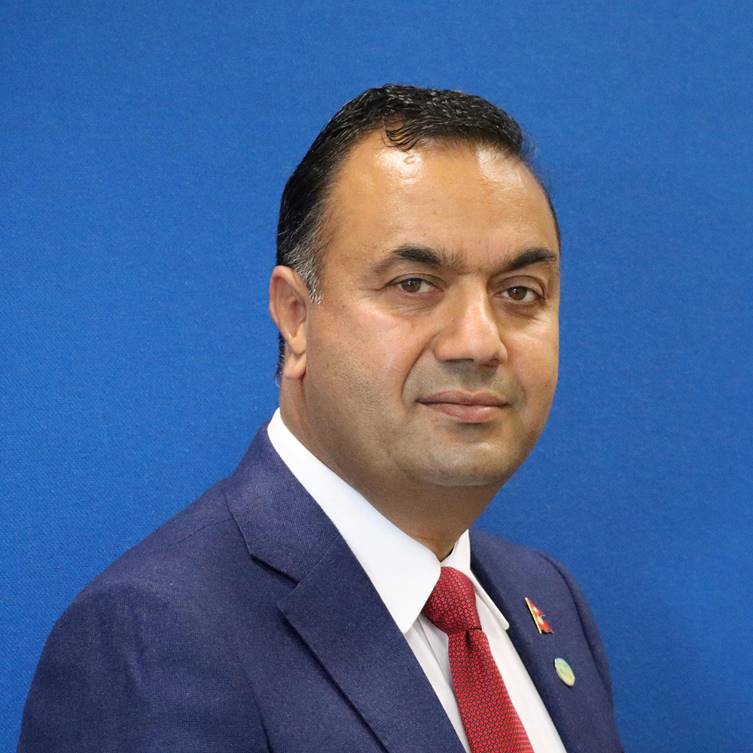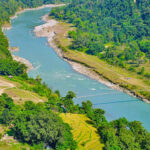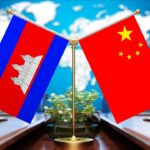Kathmandu, Aug 15 :
Hundreds of citizens considered eligible for citizenship by the Constitution of Nepal were deprived of it as the Citizenship Act was not amended even nearly seven years after the promulgation of the main law of the land.
The bill related to citizenship that was tabled in the parliament in deference to the Constitution in 2018 was in limbo. The government withdrew this bill and took into the parliamentary process in a bid to addressing the problem related to citizenship that had been lingering for long.
The House of Representatives passed the bill on July 22. Home Minister Bal Krishna Khand had tabled it in the House on July 7. It was passed by the National Assembly, the upper house of the Federal Parliament, on July 28. The Speaker certified the bill on July 31 after it was endorsed by both the houses of parliament and forwarded it to the Office of the President for its authentication by the President.
All the Non-Resident Nepalis throughout the world were fully confident that the President would authenticate the bill. But the Head of the State has returned the bill to parliament for reconsidering some of the provisions in the bill. I don’t think there is any doubt regarding the Non-Resident Nepalis (NRNs) in this.
The bill can be passed within few days if there is agreement among the political parties and the government and the ruling coalition wanted to, no matter how long the parliamentary process is.
We have considered it as an achievement that the Nepal Citizenship (First Amendment) Bill, 2079 has been passed by both houses of parliament to the extent of implementing the NRN citizenship. We are happy that the non-resident Nepalis have right to citizenship, legally, following two decades of efforts.
Although it is stated in the constitution itself that the NRNs would be issued with the NRN citizenship, it was yet to come into implementation due to no related Act for long. It was essential to give it a legal basis even by bringing an ordinance to this effect.
The passage of this bill in the parliament has worked to link the Nepalis throughout the world. This initiative to connect all the Nepalis across the world to their mother land should come to fruition soon. I believe it will be a milestone to link the Nepalis all across the world and our children to our motherland Nepal. Now, there should not be any delay in making related Regulations and issuing the citizenship certificate and passport.
Constitutional provisions about the Citizenship
The Constitution has the provision ensuring the possibility of granting the Nepali citizenship to Non-resident Nepali as it states,” a person who has acquired citizenship of a foreign country and who resides in a country other than a country member of South Asian Association for Regional Cooperation and who previously himself or herself or his/her father or mother, grandfather or grandmother was a citizen of Nepal by descent or by birth and who later acquired the citizenship of a foreign country may be granted non-resident citizenship of Nepal allowing him/her to enjoy the economic, social and cultural rights as provided for by the federal law. ”
The provision of granting the citizenship to NRN in the Citizenship Bill is in line with the same constitutional ground. The probability of issuing a non-resident Nepali citizenship on this ground has been attached in the Clause 7 of the Citizenship Act-2006.
Understanding among political parties
Political parties of national recognition had lately no differing views in regard with providing the Nepali citizenship to non-resident Nepali. Initially, political parties, their leaders and some sections of Nepali community had doubts over the demand for non-resident citizenship, but later top political leaders were convinced that the demand was rational and expressed their commitments to be by their side.
The endorsement of the Bill from the both had drawn concerns from certain sections of life in regard with its some provisions, but none was publicly against regarding the case of NRNs.
The dual citizenship is of the prolonged demand of the NRNA it has been asking for it since past 18 years. I took the endorsement of the Bill as an achievement of my term as the NRNA President. Despite the Constitutional provision, the citizenship for NRNs in absence of major legal documents was like a chimera. Now I see the possibility of the dream coming true.
Aspects impacting on NRNs
The Bill has the provision of issuing a non-resident citizenship with the right to exercise economic, social and cultural rights. Such rights will be further clarified. A large number of Nepalis residing at different parts of the world are happy and it attempts to incorporate the NRNs across the world.
As we estimate, there are around eight million people are residing at different parts of the world and over fifty percent of them are migrant workers in the Gulf nation. Likewise, around 1.5 million have acquired the citizenship of the Europe and America.
Likewise, the number of people who have obtained the citizenship of other countries and are yet to renounce the Nepali citizenship is over 600 thousands.
The amendment will be directly beneficial for NRNs. However, it has not addressed the entire demands of the NRNs. We welcome the provisions in favour of the NRNs came being based on the Constitutional ground and will keep our efforts for the dual citizenship.
Yes, the bill has not also addressed all our demands. We have differences on the process of acquiring a citizenship card. We have got some points to be amended. We are waiting for the correction gradually once the bill is implemented. Our demand is the continuation of Nepali citizenship. But, we will move ahead utilizing things that are handed as per the laws, and lobbying for additional rights simultaneously. Now, along with a citizenship certificate, the government should also provide us a Nepali passport. Still, NRNs are being deprived of political rights. We are of the view that they should be granted political rights if they are allowed participation in the holistic development of Nepal. It seems there is a need to create an effective mechanism to strengthen relations between Nepal and NRNs.
Practice of dual citizenship in other countries
Developed countries have taken flexibility on the issues of citizenship and accommodation. Other countries in the world have granted their nonresident citizens citizenship cards and other legal rights in writing. For instances, powerful countries like the United States of America and India have given the dual citizenship facility to their nonresident citizens.
Despite the Constitution of India preventing Indian citizens from availing the dual citizenship system, it has incorporated them through the Overseas Citizenship of India acting on the recommendation by the high level committee related to India diaspora.
Pakistan has managed the dual citizenship provision to its citizens living outside the country, but they lack political rights. Around 80 countries in the globe have adopted the dual, triple and multiple citizenship provision.
Our demand is also this. China has a provision of granting its citizens Chinese citizenship cards irrespective of how many years they have stayed outside the country. Likewise, Nepali citizens living in wealthy countries like Europe, the US, Canada and Switzerland can get a citizenship certificate of their respective country. There are no problems.
Nepal benefits by granting nonresident Nepalis Nepali citizenship cards
This is an important issue. The government though its policies, programmes and budget for the current fiscal year, 2022/23 has tried to accommodate the issues relating to nonresident Nepalis. But, Nepali people living in foreign countries have cast their doubt without the guarantee of a Nepali citizenship card.
NRNs have been raising their voices demanding a provision of opening a foreign currency account in Nepal so they can bring in currencies and withdraw them when need be without any hindrance. For this, the Government of Nepal has made the things easier. The acquirement of a citizenship card would additionally encourage nonresident Nepali people. They have become more excited following the passage of the citizenship bill that includes the provision for nonresident Nepali people to get a Nepali citizenship card.
Nepal has been emphasizing economic diplomacy. Nepalis students pursuing higher studies in Australia account for the third highest among the international students there. Foreign currency worth billions of rupees is going out of the country due to growing number of Nepalis students flocking abroad in pursuit of higher studies.
At the time when Nepal was facing liquidity crunch, NRNA should attract foreign investment in Nepal as early as possible and create opportunities and enabling environment to provide quality education at home. This will prevent foreign currency earned by the non-resident Nepalis from going outside the country.
I am confident that the investment from the non-resident Nepalis (NRNs) will go up if the government creates an enabling environment at policy level. The favorable investment environment will bring in technology and knowledge and help Nepal receive more support and endorsement internationally.
NRNs responsibility towards Nepal
Non-resident Nepalis residing across 80 foreign countries are united by the NRNA. The Act will protect NRNs’ properties in Nepal and they could confidently consider investment here.
When it comes to investment, NRNs’ presence is continuously increasing in this domain. The economy of the country is aloft due to NRN sending home their monthly remuneration as a remittance. NRNs would get to feel like a citizen of this country. This will lead to rise in foreign investment in the country and attract their skills and resources.
NRNs are excited about obtaining citizenship identity of Nepal as the constitution of Nepal mandates that they can also exercise economic, social and cultural rights as every other Nepalis here.
Lately, the NRNs have begun feeling connected to their land of origin (Nepal). In absence of dual citizenship provision, Nepalis could not confidently investment in Nepal.
By providing dual citizenship identity card for the NRNs, the Infrastructure Development Fund initiated by the NRNA would be brought in good use. The Bank is bound to establish itself as the biggest financial institution of the country. We are confident that NRNA’s goal to invest in the result-oriented projects would be realized at the earliest.
It will be an important ‘milestone’ if the NRNs could invest in Nepal, it would bolster investment and prevent their properties to go out of the country.
Therefore this Bill should not be viewed from political lens. We should instead see it as the need of the nation and as a resolution to end the statelessness among the Nepali citizens.
(An excerpt of the interview of the NRNA’s executive President Kul Acharya taken by RSS’s Feature News Head Krishna Adhikari.)
(RSS)



